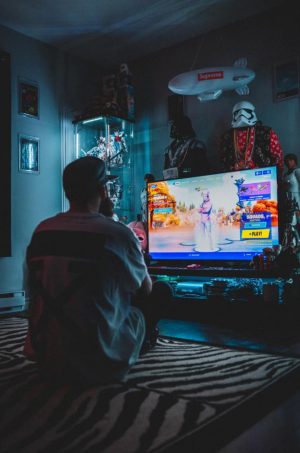Procrastination and Prevention
Procrastination is a problem in all of us. Every day there is something that we push off until later! It may be doing some homework, finishing a project, writing a paper, or studying for an exam. Perhaps, it’s writing a newspaper article about procrastination. Inevitably, this will happen to us all. So how can we do it less? What can we do to be more productive? Why does procrastination occur in the first place?
Surprisingly enough, procrastination has nothing to do with laziness. Laziness is doing nothing and being perfectly content with that. On the other hand, procrastination is doing nothing but knowing that something is not being finished because nothing is being done. Instead of laziness, procrastination has to do with emotions. It allows for one to fix something in the short term and have momentary relief. It can lead to dread and stress later on because of the work that was put off earlier.
During a period of procrastination, the fun or relaxation one feels is fake. It is filled with things like “I could be doing something more productive” and “that thing is still due, and I have to worry about it”.

Dr. Tim Pychyl, a psychologist and member of the Procrastination Research Group at Carleton University, said, “Procrastination can be understood as the primacy of short-term mood repair over the longer-term pursuit of intended actions.”** Basically, procrastination is fixing things at the moment instead of getting on with what needs to be done.
If it’s inevitable that procrastination will happen, how can we make it happen less? There is no surefire way to stop procrastination, and there is no guarantee that these tips will work. However, here are a few ideas to help break the habit:
- Daily To-Do Lists
Building a short to-do list for each day can help one to stay on task and get the important things done when they need to be. Longer lists can drag on and lead to delay just by looking at them, so a shortlist with more critical items can be helpful.
- Retrospective
Taking a look back every once in a while can help to identify procrastination and why it happens in you. Ask yourself what your motives are when working, what brings you off track, how you stay on track when you get things done. Find out what works for you, and try to find a way to do it more often.
- Baby Steps
Give yourself smaller rewards as you work through certain milestones of doing something. Short breaks every once in a while can go a long way in making the end product significantly better because you get time to recharge in between your work periods. Also, as you take your breaks, your brain can keep spinning at the ideas that it left off. When you come back to the table, you can have more than you left.
“Don’t put off to tomorrow what can be done today.”
**Article featuring Tim Pychyl: https://www.nytimes.com/2019/03/25/smarter-living/why-you-procrastinate-it-has-nothing-to-do-with-self-control.html**
Sources:
Lieberman, Charlotte. Why You Procrastinate (It has Nothing to do with Self Control). The New York Times. Published March 25, 2019. https://www.nytimes.com/2019/03/25/smarter-living/why-you-procrastinate-it-has-nothing-to-do-with-self-control.html
What is Procrastination? Procrastination.com. https://procrastination.com/what-is-procrastination
Watchwellcast. How to stop procrastinating. YouTube.com. Published November 9, 2012. https://www.youtube.com/watch?v=Qvcx7Y4caQE


